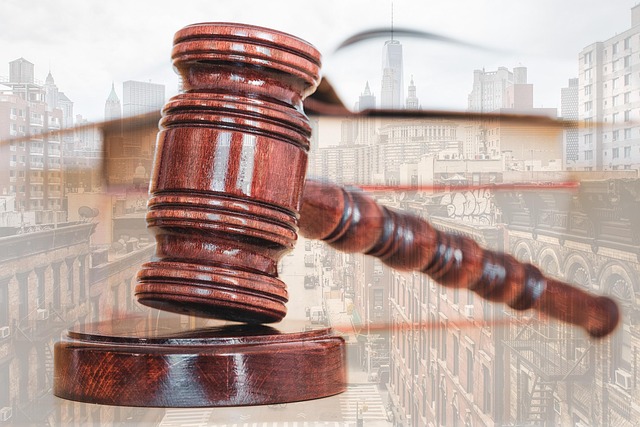Criminal Defense Attorneys navigate legal systems to ensure fairness. They choose between Class Action Lawsuits (multiple plaintiffs against a common defendant) and Individual Lawsuits (focused on unique plaintiff circumstances). Class actions aim for collective justice and substantial settlements, while individual lawsuits protect each defendant's rights. The strategy depends on case facts, with attorneys prioritizing fair trials or collective relief based on stage of the process.
Criminal Defense Attorneys play a pivotal role in safeguarding individuals’ rights within the legal system. This article delves into the nuanced world of criminal defense, exploring key distinctions between class action and individual lawsuits. We examine when class actions are suitable for criminal cases and navigate the strategic choices between individual and collective suits. Understanding these dynamics empowers both legal professionals and those facing charges to make informed decisions in navigating complex legal landscapes.
- Understanding Criminal Defense Attorneys' Role
- Class Action vs. Individual Lawsuits: Key Differences
- When Is a Class Action Suitable for Criminal Cases?
- Navigating Legal Strategies: Individual vs. Collective Suits
Understanding Criminal Defense Attorneys' Role

Criminal Defense Attorneys play a crucial role in navigating the complex legal system, especially when their clients face criminal charges. Their primary duty is to provide zealous representation and protect the rights of those accused, ensuring they receive a fair trial. These attorneys are well-versed in various areas of law, but their expertise lies in defending individuals or groups against criminal allegations.
When representing clients in either a class action lawsuit or an individual lawsuit, Criminal Defense Attorneys’ strategies may vary. In a class action, where multiple plaintiffs unite against a common defendant, the focus shifts to seeking complete dismissal of all charges for the group as a whole. Conversely, general criminal defense attorneys advocate for their clients’ interests, aiming to secure the best possible outcome, whether it’s a reduction in charges or a complete acquittal, based on the specifics of each unique case.
Class Action vs. Individual Lawsuits: Key Differences

In the realm of criminal defense, understanding the distinctions between a Class Action Lawsuit and an Individual Lawsuit is paramount for those facing legal repercussions. While both seek justice, their approaches and impacts diverge significantly. A Class Action Lawsuit involves a collective effort where multiple plaintiffs unite against a common defendant, often driven by shared experiences of harm or discrimination. This strategy allows for more substantial financial settlements or non-monetary redress, as the combined voices of the aggrieved can carry considerable weight in court.
In contrast, Individual Lawsuits focus on the unique experiences and grievances of a single plaintiff. These lawsuits are tailored to specific circumstances, making them powerful tools for securing a complete dismissal of all charges or avoiding indictment in certain cases. Across the country, experienced Criminal Defense Attorneys often utilize this approach when the facts warrant it, aiming to protect their clients’ rights and ensure they receive a fair trial.
When Is a Class Action Suitable for Criminal Cases?

In certain criminal cases, a class action lawsuit can be an effective strategy. This type of legal action is suitable when multiple individuals have suffered similar harm or losses due to a single criminal act or pattern of misconduct. For instance, in white collar and economic crimes, where numerous people may have been defrauded or subjected to illegal financial practices, a class action can provide a collective voice to these victims. This approach offers several advantages over individual lawsuits, especially in high-stakes cases where the potential damages are substantial.
By consolidating claims into a single lawsuit, class actions can lead to more efficient legal proceedings and potentially result in a complete dismissal of all charges. This is particularly valuable when dealing with complex criminal schemes that affect a large number of people. Class action lawsuits also ensure that each victim receives fair compensation or relief without the need for individual litigation, which can be time-consuming and costly.
Navigating Legal Strategies: Individual vs. Collective Suits

When Criminal Defense Attorneys take on a case, they often face a strategic dilemma: pursuing an individual lawsuit or advocating for a collective action through a class-action lawsuit. Both have their merits and are employed at different stages of the investigative and enforcement process. Individual lawsuits focus on the unique circumstances of each defendant, aiming to secure the complete dismissal of all charges based on specific legal defenses or procedural errors. This approach is tailored to protect the rights of the accused and ensure a fair trial.
On the other hand, class-action lawsuits aggregate multiple claims into a single case, representing a broader group of individuals who share similar experiences or grievances against a common defendant. This collective strategy can be powerful in holding large institutions accountable for systemic issues and seeking justice for all victims. While it may not always result in the complete dismissal of charges, it can lead to significant settlements that compensate affected parties and serve as a deterrent for future misconduct.
Criminal defense attorneys play a pivotal role in protecting individuals’ rights, whether through individual or class action lawsuits. Understanding the nuances of these legal strategies is essential for effective representation and ensuring justice. While class actions offer a collective approach to address systemic issues, individual lawsuits cater to specific grievances. Knowing when to employ each tactic can significantly impact outcomes in criminal cases, allowing attorneys to navigate complex legal landscapes and secure the best possible resolutions for their clients.






